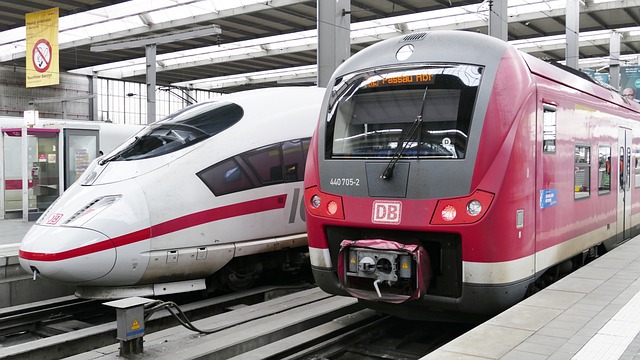Railway Worker in Operational Service
 Railway Workers in Operational Service operate trains in local and long-distance transport.
Railway Workers in Operational Service operate trains in local and long-distance transport.
The apprenticeship is a dual training programme that lasts three years. The theoretical part of the training takes place at a vocational school and the practical part in training companies at railway companies. No specific school education is required by law. However, companies predominantly employ trainees with a secondary school leaving certificate.
Responsibilities of a Railway Worker in Operational Service
- steering trains for passenger, goods and shunting traffic,
- checking, maintaining and servicing trains,
- shunting, forming and unloading trains,
- checking the train data and road safety of the trains before starting the journey
Hard skills and soft skills
- a sense of responsibility,
- cautiousness and observation accuracy,
- stress resistance,
- the ability to concentrate,
- manual dexterity for maintenance and inspection work on trains,
- technical understanding,
- the ability to make decisions and react quickly,
- accuracy,
- no problem with shift work.
Some companies require proof of physical and mental fitness in the form of a medical certificate or a psychological report.
Salary Expectations
The apprenticeship salary varies depending on the federal state and whether it is paid by collective agreement.
1 year €800 to €1,000
2 year €900 to €1.100
3 year €1,000 to €1,150
The salary after the apprenticeship depends on the federal state, the employer, the collective wage agreement and the area of work.
The average starting salary is around €2.500€ gross per month. Supplements for overtime or work on Sundays and public holidays are either paid extra or are already included in the basic salary. With more professional experience, the salary is between €3.000 and €3,200 gross per month. However, this is not the final salary. Salaries can be increased through further training and education.
Further Education and Training
Railway Workers in Operational Service can continue their education and training to become:
- Master craftsman (rail transport)
- Technician (transport technology)
- Specialist (railway operations, freight transport and logistics)
Persons over 45 Years
If you are 45 years or older, you also have to receive a salary of at least €4015 in Western Germany, resp. €3905 for Eastern Germany. If your salary will be lower than that threshold, you will have to show an adequate pension plan or other provisions for retirement. This coverage can be either the state pension plan from home, private savings, or closing a German pension plan or a mixture of all. The government wants to make sure that you will not be dependent on welfare upon retiring. An exception is imaginable, when there is a public interest in a certain profession. A public interest will be typically assumed when the profession is in shortage in Germany. You will find some examples here: www.vonEngelhardt.com/professions
N.B. This is only relevant for the very first permit!
